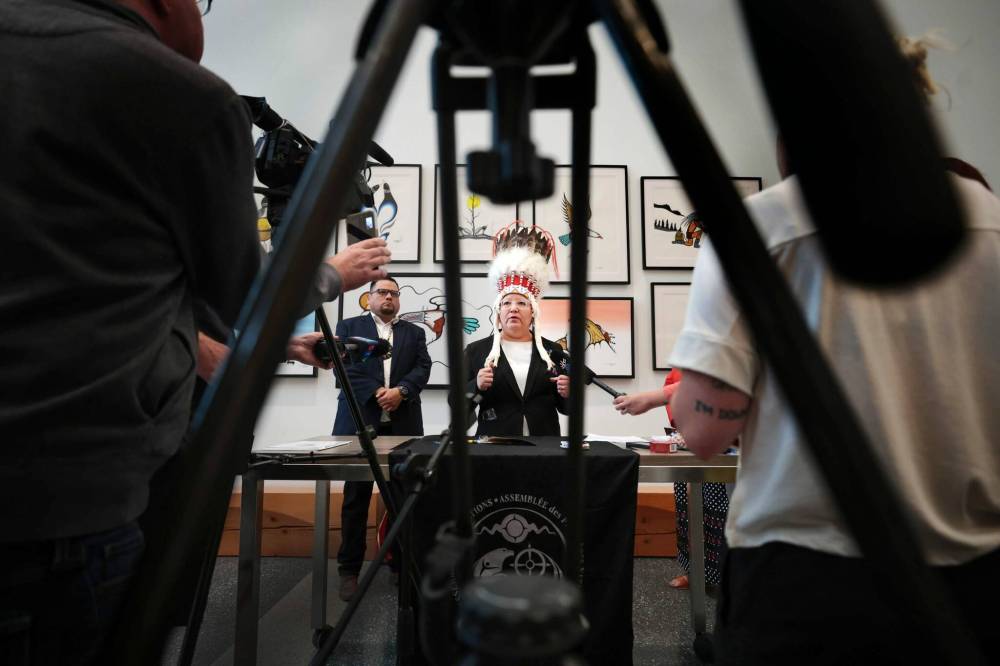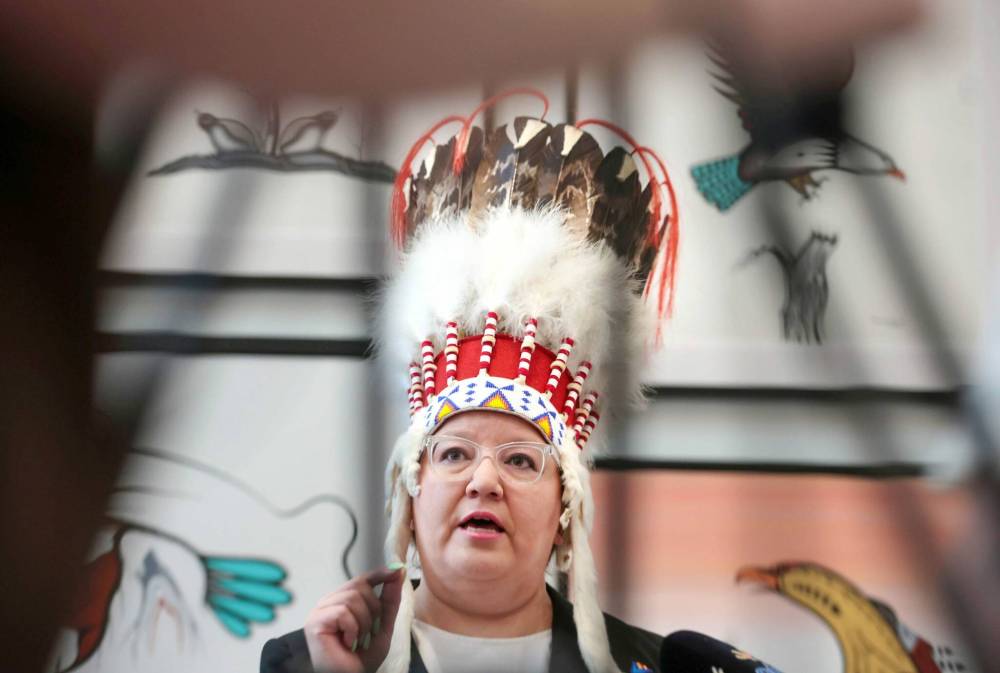Manitoba chiefs are meeting this week to discuss how billions of dollars should be best spent on reforming the First Nations child welfare system.
A recently negotiated draft settlement agreement will see the federal government spend $47.8 billion over 10 years to fund long-term reform measures of the First Nations Child and Family Services Program.
“Chiefs need to look through and tell us exactly what changes that they want to make it work for them, but we have to be very clear that this (money) has to go to First Nations, and it has to be First Nations-led,” said Assembly of First Nations National Chief Cindy Woodhouse Nepinak at a news conference Tuesday morning.

Ruth Bonneville / Free Press
Assembly of First Nations (AFN) National Chief Cindy Woodhouse Nepinak said for the first time, First Nations communities have a chance to decide for themselves how the child-welfare system functions.
First Nations chiefs across Canada have been discussing the draft settlement over the last two months, including their concerns with the deal and what they’d like to see the money spent on.
The deal stems from a 2016 ruling from the Canadian Human Rights Tribunal that found the Canadian government discriminated against children and families in First Nations communities by failing to provide them with the same level of child and family services as elsewhere in the country.
In 2019, the tribunal ordered the feds to compensate children and families to the tune of $23 billion. Later, there was an agreement-in-principle promising an additional $20 billion to reform First Nations child and family services.
Woodhouse Nepinak said the goal is to move toward a “prevention, not apprehension” model.
“Our people have inherited a really broken child-welfare system, and these are really hard discussions,” Woodhouse Nepinak said.
Assembly of Manitoba Chiefs Grand Chief Cathy Merrick went so far as to say First Nations communities don’t need child-welfare systems.
“We never needed systems before. So that’s where we want to go back to,” Merrick told reporters. “We want to rely on families, we want to rely on the aunties and the uncles to step in when it comes to our children.
“We want to develop our own laws, our own family laws for our people that will benefit our people.”

Ruth Bonneville / Free Press
First Nations chiefs across Canada, including AFN national chief Cindy Woodhouse Nepinak, have been discussing the draft federal child-welfare settlement over the last two months.
Woodhouse Nepinak echoed Merrick’s comments, but said the deal isn’t about pushing out traditional service providers.
“First Nations know what works and what doesn’t work for them,” she said. “I think that we need to build more capacity across this country, but at the same time I think First Nations, for the first time, will have a chance to decide for themselves how the system looks within from their perspective, from their First Nation community.”
The AFN will travel to Saskatchewan and the remaining provinces in the coming weeks before travelling to the northern territories for similar meetings. The AFN will then put the draft settlement to a final vote in at a special assembly in Winnipeg next month.
nicole.buffie@freepress.mb.ca

Nicole Buffie
Multimedia producer
Nicole Buffie is a multimedia producer who reports for the Free Press city desk. Born and bred in Winnipeg, Nicole graduated from Red River College’s Creative Communications program in 2020 and worked as a reporter throughout Manitoba before joining the Free Press newsroom in 2023. Read more about Nicole.
Every piece of reporting Nicole produces is reviewed by an editing team before it is posted online or published in print — part of the Free Press‘s tradition, since 1872, of producing reliable independent journalism. Read more about Free Press’s history and mandate, and learn how our newsroom operates.
Our newsroom depends on a growing audience of readers to power our journalism. If you are not a paid reader, please consider becoming a subscriber.
Our newsroom depends on its audience of readers to power our journalism. Thank you for your support.